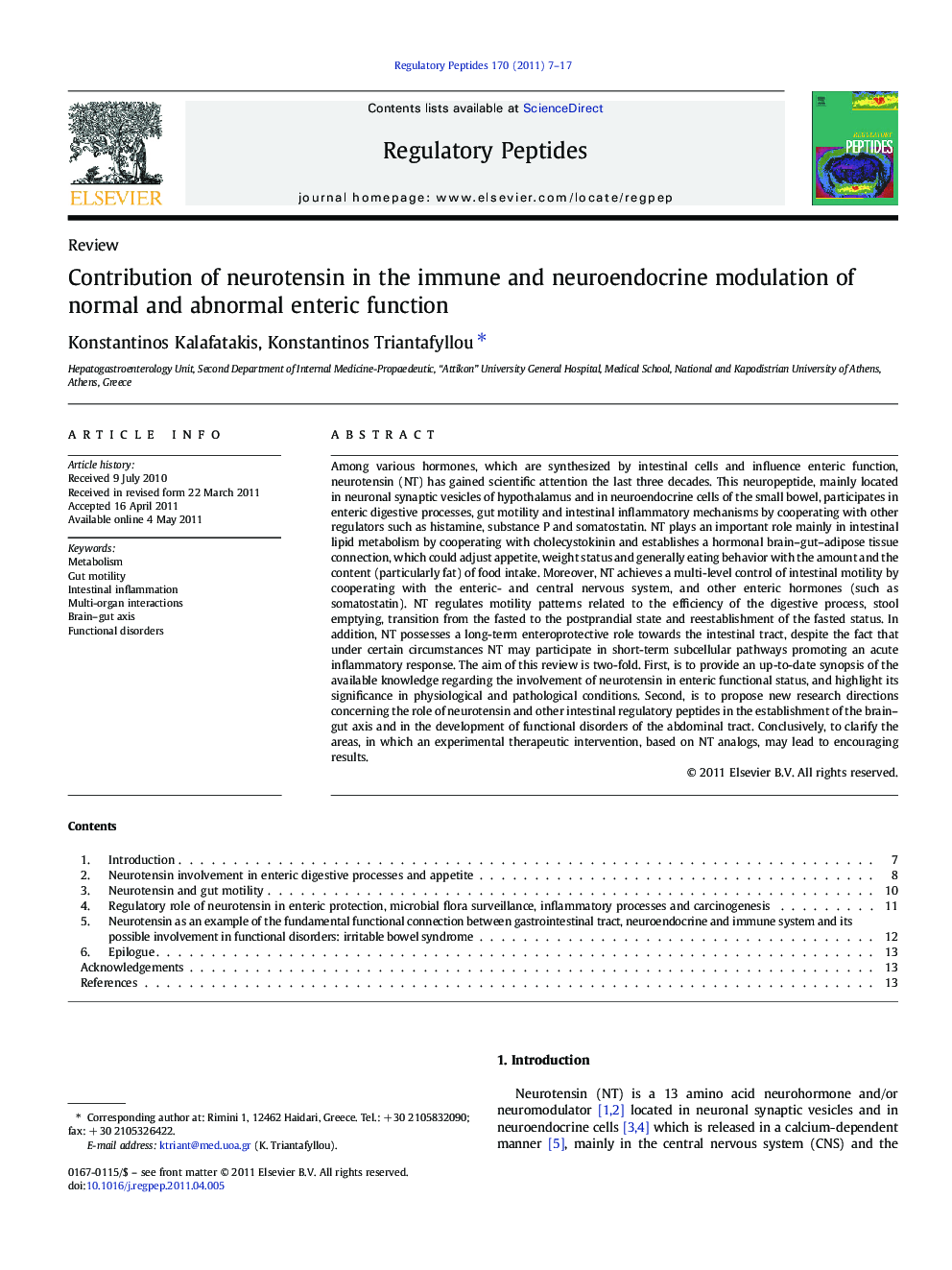| Article ID | Journal | Published Year | Pages | File Type |
|---|---|---|---|---|
| 2022592 | Regulatory Peptides | 2011 | 11 Pages |
Among various hormones, which are synthesized by intestinal cells and influence enteric function, neurotensin (NT) has gained scientific attention the last three decades. This neuropeptide, mainly located in neuronal synaptic vesicles of hypothalamus and in neuroendocrine cells of the small bowel, participates in enteric digestive processes, gut motility and intestinal inflammatory mechanisms by cooperating with other regulators such as histamine, substance P and somatostatin. NT plays an important role mainly in intestinal lipid metabolism by cooperating with cholecystokinin and establishes a hormonal brain–gut–adipose tissue connection, which could adjust appetite, weight status and generally eating behavior with the amount and the content (particularly fat) of food intake. Moreover, NT achieves a multi-level control of intestinal motility by cooperating with the enteric- and central nervous system, and other enteric hormones (such as somatostatin). NT regulates motility patterns related to the efficiency of the digestive process, stool emptying, transition from the fasted to the postprandial state and reestablishment of the fasted status. In addition, NT possesses a long-term enteroprotective role towards the intestinal tract, despite the fact that under certain circumstances NT may participate in short-term subcellular pathways promoting an acute inflammatory response. The aim of this review is two-fold. First, is to provide an up-to-date synopsis of the available knowledge regarding the involvement of neurotensin in enteric functional status, and highlight its significance in physiological and pathological conditions. Second, is to propose new research directions concerning the role of neurotensin and other intestinal regulatory peptides in the establishment of the brain–gut axis and in the development of functional disorders of the abdominal tract. Conclusively, to clarify the areas, in which an experimental therapeutic intervention, based on NT analogs, may lead to encouraging results.
Research highlights► NT plays important role mainly in intestinal lipid metabolism and it participates in brain-gut-adipose tissue connection. ► NT achieves a multi-level control of intestinal motility. ► NT possesses a long-term enteroprotective role towards the intestinal tract. ► NT may be involved in acute subcellular pathways of inflammatory response. ► Indirect data imply a possible relation between NT and irritable bowel syndrome.
